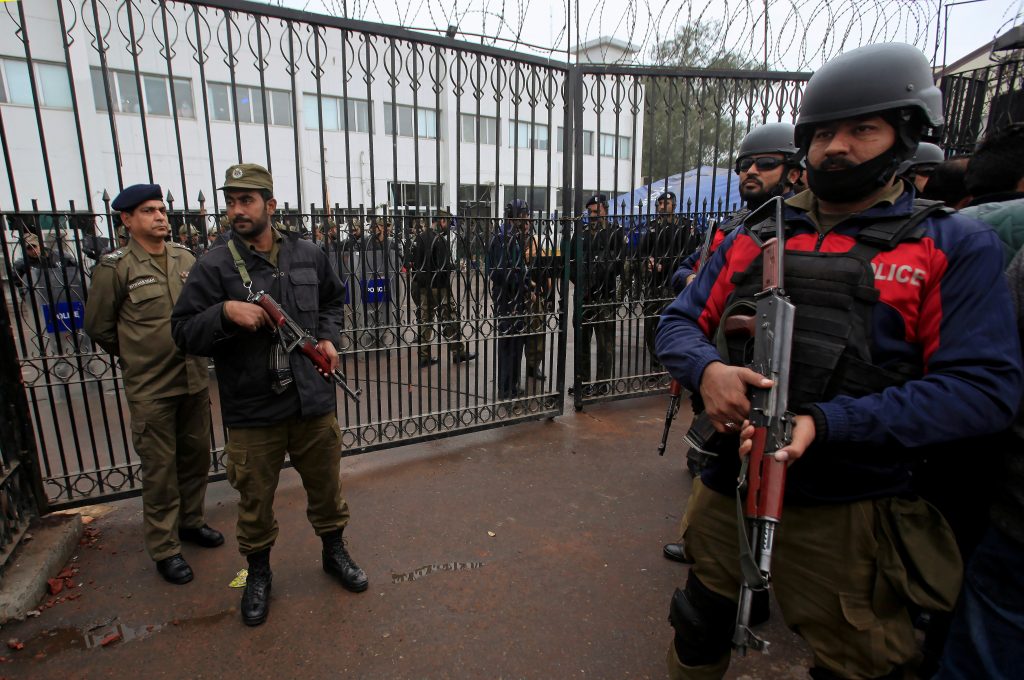Externally, Pakistan faces new security threats from looming civil war in Afghanistan, shifting global power dynamics and Sino-US power competition, growing Indo-US strategic partnership, changing nature and characteristics of the Indian state, advancing technology and cyber threats, navigating new geopolitics of the region, and emerging transboundary terrorism challenges.
As civil war looms in Afghanistan, it will create security challenges for Pakistan. The fallout of the Afghanistan civil war can be refugee influx in KPK and Baluchistan, which have already been volatile provinces of the country. The more Afghan exodus reaches these two provinces, the greater economic pain will be felt. Consequently, conflict escalates over meager resources—especially water and food—between different segments of society, creating a new theatre of the contest in both provinces of the country.
Read more: Pakistan’s remarkable role in transforming geopolitics
Moreover, the Afghan Taliban, as advancing to take over Afghanistan, embolden other extremist groups such as the TTP and ISIS to increase their terrorist activities in Pakistan, thereby disrupting hardly achieved internal peace and stability.
Pakistan in the eye of a geopolitical storm
With shifting, winds of power from West to East, Pakistan, owing to its geostrategic location, will find itself a geopolitical storm of Sino-US power competition. Pakistan’s balancing approach toward the US and China is no longer workable; it has to make a strategic choice between Washington and Beijing as both powers’ growing competition is compressing time and space for Islamabad.
Obviously, by aligning with either of the two great powers, Pakistan will confront new security challenges because great powers can cloud the strategic environment of the region. Growing Indo-US strategic romance can greatly affect regional strategic stability.
To contain China, the US has forged a strategic alliance with India; both countries have increased their military collaboration. Despite nuclear deterrence, strategic balance in the region will tilt in favor of India provided that Washington throws its strategic weight behind New Delhi to obstruct Beijing’s regional outreach. As a result, Pakistan will be in a disadvantaged position as the regional balance of power shifts against it, while India is radically transforming internally.
Read more: The “New Quad” is a geostrategic masterstroke for Pakistan
Notwithstanding that India has claimed to be a secular and democratic country, power usurpation by the BJP-RSS cohort, with ultranationalist sentiments, has changed the nature and characteristics of the Indian state. The moderate and secular impulse of the country has stopped working; India is now becoming a dangerous radical country with increasing extremist tendencies in both the government and the media.
India stepping up their geopolitical game
This ideological change in India has brought about the Pulwama-Balakot crisis, which has increased the risk of nuclear escalation between the two nuclear armed countries. The ideological shift in India, as it has been taking place since the BJP has come to power, would have horrendous repercussions for regional peace. It increases the risk of strategic miscalculation by affecting crisis as well as deterrence stability.
However, technological advancement is critical for modern development. But it has security implications, too. Artificial intelligence and cyber security advancement by adversaries put the vulnerable country at risk. India’s primacy in the IT sector creates national security challenges for Pakistan because New Delhi attempts to use its technological superiority to carry out cyberattacks against Islamabad.
Read more: How the 5th generation warfare is spinning our world?
Critical communication networks will be disrupted that certainly results in the breach of national security data by putting all security installations, banking systems and information sectors at risk. Besides, information warfare and cyberterrorism are also woven into the global technological landscape.
A look at internal and external threats to Pakistan
Moreover, the shifting sands of regional geopolitics put stress on the country’s national security. Navigating these troubled waters will not be as smooth as it seems since the geopolitical transformation is occurring in Pakistan’s neighborhood and beyond. Militant groups at the helm of affairs in Afghanistan, Indo-US strategic alignment, Indo-Israel bonhomie, Saudi-Iran discontent, Arab normalization with Israel, great powers competition at the Indo-Pacific region, Russia’s return to South Asia and China’s quest to be the next global superpower are critical developments which can be a litmus test for Pakistan’s national security.
Although Pakistan has succeeded in eliminating terrorist networks by launching several military operations at conflict ridden areas of the country, terrorist outfits have flown to Afghanistan and other neighboring countries from where they operate and carry out sporadic terrorist activities in Pakistan.
Read more: Pakistan economy to suffer if Afghan peace talks fail
Religious and nationalist banned militant organizations tend to launch attacks on Pakistani soil by hiding in neighboring countries. Recent mounting terrorist activities in the country signify that new security threats are emerging from transboundary terrorist operations.
Internally, identity crisis, ethno-nationalism, extremism, deteriorating state-society relations, political polarization, the contest over interprovincial water resources and socio-economic insecurity are critical challenges for a country’s national security. These challenges can stymie Pakistan’s economic progress and political stability which are crucial for internal cohesion and national harmony.
Both external and internal security threats deserve indiscriminate attention. Pakistan can overcome external challenges by crafting proactive foreign policy measures in order to protect its national interests. Pakistan’s geo-economic shift is a significant policy initiative that will help the country in steering out new geopolitical crises. Besides, appreciating diversity, getting rid of extremism, making equal distribution of resources, promoting democratic culture, and educating the youth can be the panacea to these security challenges.
Read more: Failure of Indian rhetoric to isolate Pakistan in the international community
The writer is strategic affairs and foreign policy analyst. He can be reached at dr.baloch@yahoo.com. The views expressed in this article are the author’s own and do not necessarily reflect Global Village Space’s editorial policy.














